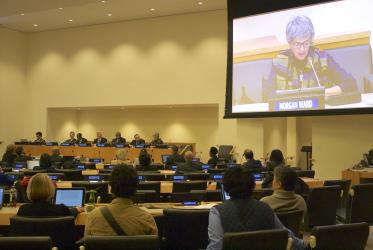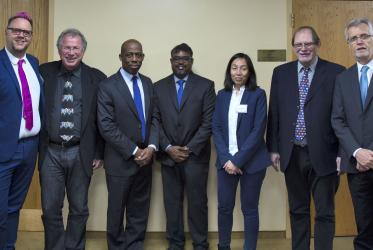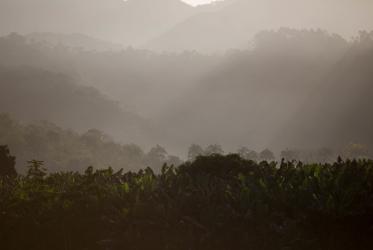Displaying 1 - 15 of 15
Churches should use their voice on climate change
26 February 2020
New economic architecture focus of New York meeting
22 April 2018
Protect the Amazon, urges WCC statement
22 November 2017
Emily Welty: tide of hope for a world free from nuclear weapons
19 September 2017
G20 summit: call to pray for peace in Hamburg
07 July 2017
WCC general secretary addresses global Pentecostal gathering
09 September 2016








